
Resilience is the ability to recover from adversity and bounce back stronger than before. It is the strength to adapt and thrive in the face of stress and challenges. Resilience strategies are the coping mechanisms and approaches we employ to build and maintain our resilience.
Resilience is not about avoiding or eliminating stress, but rather about developing the skills and mindset to navigate through it. It is about finding meaning and purpose in difficult situations, and using them as opportunities for growth and learning. Resilience is not a fixed trait, but rather a set of skills that can be cultivated and strengthened over time.
Resilience strategies encompass a wide range of practices and techniques. They can include building a strong support network, practicing self-care and self-compassion, setting realistic goals, and developing problem-solving and decision-making skills. Resilience strategies also involve cultivating positive emotions, such as gratitude and optimism, and developing a growth mindset that embraces challenges and setbacks as opportunities for personal development.
Understanding the meaning and importance of resilience strategies is crucial in today’s fast-paced and ever-changing world. The ability to adapt and bounce back from setbacks is essential for personal well-being and success. Resilience strategies not only help us navigate through difficult times, but they also enable us to thrive and flourish in the face of adversity. By building our resilience, we can become more equipped to handle life’s challenges and lead a more fulfilling and meaningful life.
What is Resilience?

Resilience is the ability to bounce back and recover from difficult experiences, challenges, or adversity. It is a strength that allows individuals to adapt and cope with stress and change in a positive and productive way. Resilience is not about avoiding or eliminating stress, but rather about developing strategies to effectively manage and navigate through it.
Resilience involves flexibility and the capacity to find meaning and purpose in challenging situations. It is about being able to learn from setbacks and use them as opportunities for growth and development. Resilient individuals are able to maintain a sense of optimism and hope, even in the face of adversity.
Resilience strategies can vary from person to person, but they often involve developing healthy coping mechanisms, such as seeking support from others, practicing self-care, and engaging in activities that promote well-being and relaxation. These strategies help individuals build resilience and enhance their ability to recover from stress and adversity.
Resilience is an important trait to cultivate, as it can have a significant impact on overall well-being and mental health. By building resilience, individuals can become better equipped to handle life’s challenges and setbacks, and to adapt and thrive in the face of adversity.
Defining Resilience
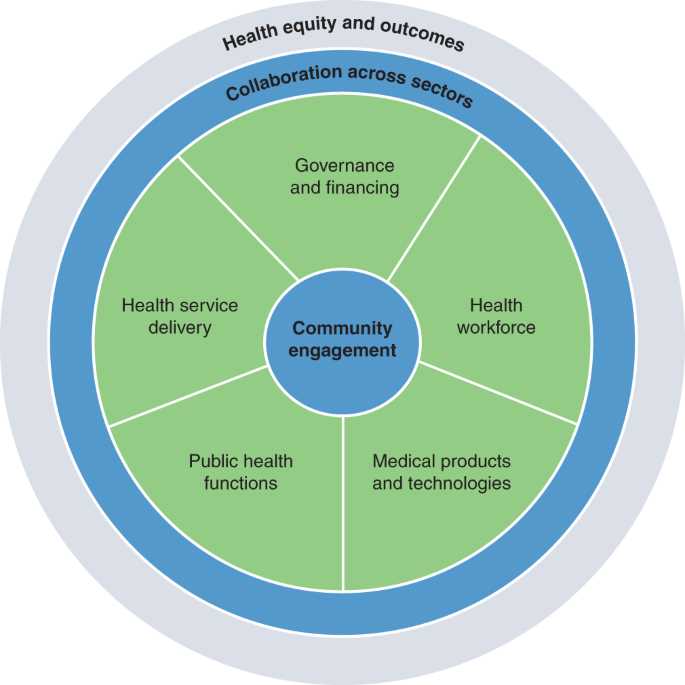
Resilience can be defined as the ability to adapt and cope with stress, adversity, and challenges, and to bounce back and recover from difficult experiences. It is a concept that encompasses both individual and collective strength, and it has various meanings in different contexts.
At its core, resilience refers to the ability to effectively navigate and manage life’s ups and downs. It involves the capacity to remain flexible and adaptable in the face of adversity, and to find meaning and purpose in difficult situations. Resilience is not about avoiding or suppressing stress, but rather about developing strategies and skills to effectively deal with it.
Resilience strategies are the tools and techniques that individuals and communities can use to build and strengthen their resilience. These strategies may include developing a strong support network, practicing self-care and self-compassion, setting realistic goals, cultivating positive coping mechanisms, and seeking professional help when needed.
Resilience is an important trait to cultivate because it can help individuals and communities recover and thrive in the face of adversity. It is not a fixed characteristic, but rather a skill that can be learned and developed over time. By building resilience, individuals can increase their capacity to bounce back from setbacks, adapt to change, and find new opportunities for growth and success.
Understanding the Concept
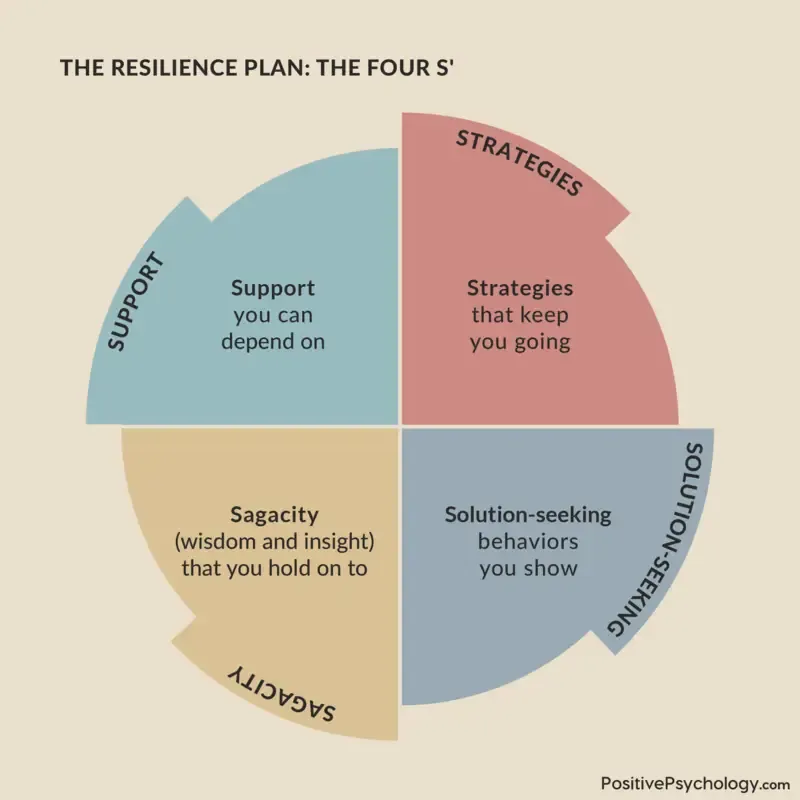
The concept of resilience is often associated with the ability to cope with adversity and bounce back from difficult situations. It encompasses the idea of adaptation and the ability to maintain a sense of meaning and strength in the face of adversity. Resilience is not about avoiding stress or difficult situations, but rather about developing strategies to effectively navigate and manage them.
Resilience is characterized by flexibility and the ability to adapt to changing circumstances. It is not a fixed trait, but rather a set of skills and strategies that can be learned and developed over time. Resilience involves recognizing and harnessing one’s own strengths and resources to overcome challenges.
Stress is an inevitable part of life, and resilience strategies are essential for effectively managing and mitigating its impact. Resilience allows individuals to maintain a positive outlook, even in the face of adversity, and to bounce back more quickly from setbacks.
Resilience strategies can take many forms, including building a strong support network, practicing self-care, setting realistic goals, and developing problem-solving skills. These strategies can help individuals develop the resilience they need to overcome challenges and thrive in the face of adversity.
Key Characteristics of Resilience
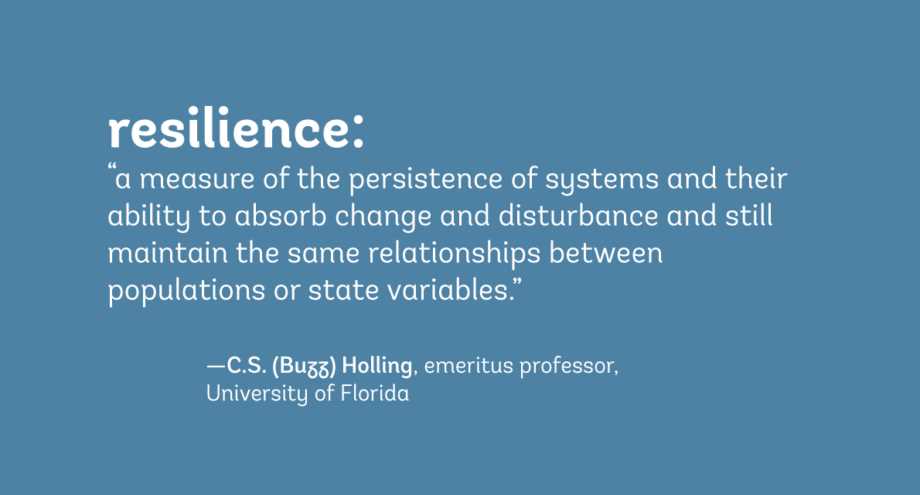
Resilience is the ability to cope with and recover from stress, adversity, and challenges. It is a strength that enables individuals to bounce back and adapt in the face of difficult circumstances. Understanding the key characteristics of resilience can help individuals develop effective strategies to enhance their own resilience.
1. Meaning: Resilience is not simply about bouncing back, but it also involves finding meaning and purpose in the face of adversity. It is about understanding the lessons learned and growing stronger from the experience.
2. Flexibility: Resilience requires the ability to be flexible and adaptable. It involves being open to change and being able to adjust one’s mindset and actions in response to new challenges and circumstances.
3. Strength: Resilience involves inner strength and the ability to withstand and overcome difficult situations. It is about harnessing one’s inner resources and relying on personal strengths to navigate through adversity.
4. Recovery: Resilience is not about avoiding or suppressing emotions, but rather about allowing oneself to feel and process emotions in a healthy way. It involves taking the time to recover and heal from difficult experiences.
5. Coping Strategies: Resilience involves developing and utilizing effective coping strategies to deal with stress and adversity. This may include seeking support from others, practicing self-care, and engaging in activities that promote well-being.
6. Strategies: Resilience is not a passive trait, but rather an active process. It involves consciously choosing and implementing strategies that promote resilience, such as practicing gratitude, maintaining a positive mindset, and setting goals.
Overall, resilience is a multifaceted concept that encompasses various key characteristics. By understanding these characteristics and actively working towards developing resilience, individuals can better navigate the challenges of life and emerge stronger from adversity.
The Importance of Resilience
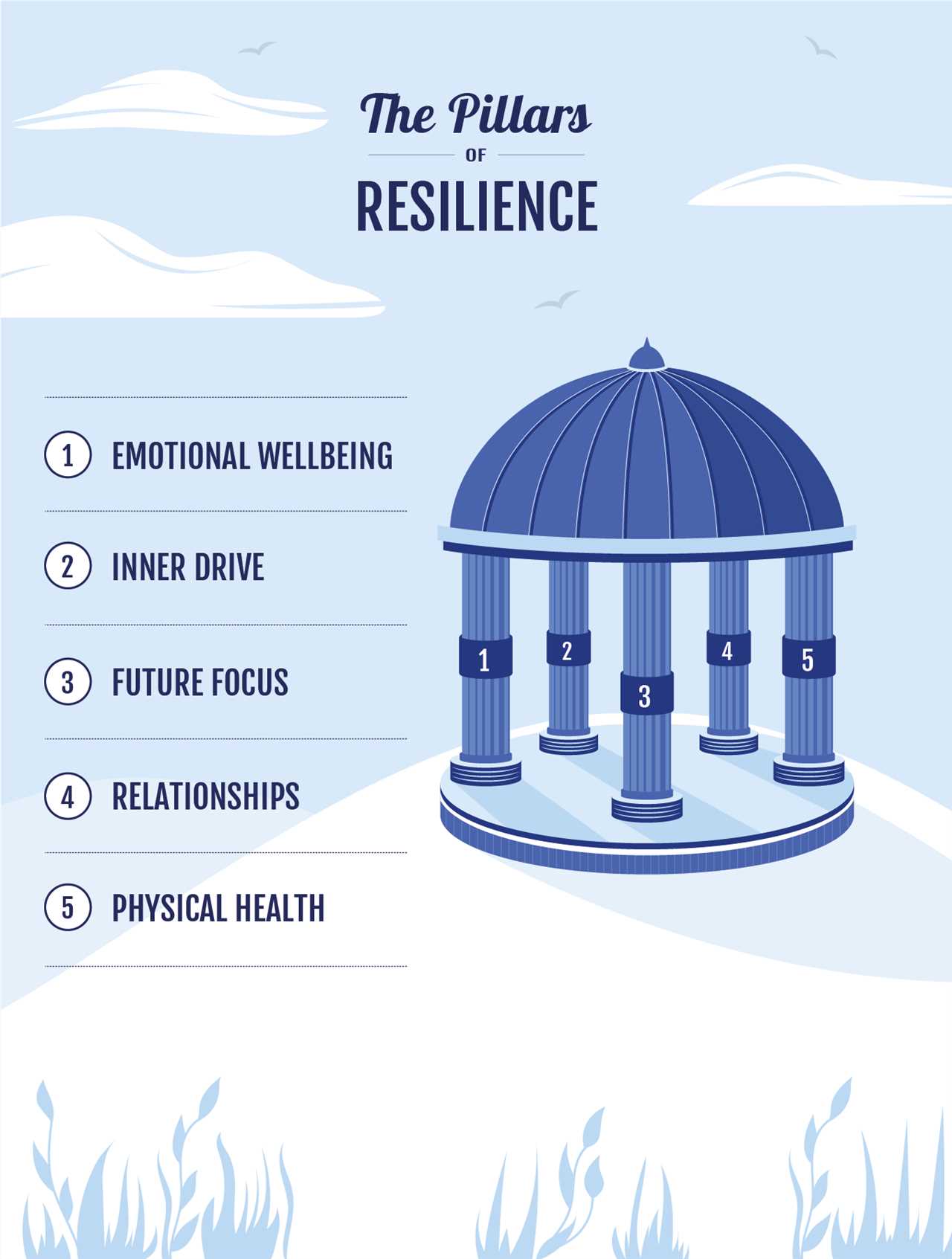
Resilience is a concept that holds great meaning in today’s fast-paced and unpredictable world. It refers to the ability to bounce back from adversity, overcome challenges, and adapt to change. Resilience strategies are essential for managing stress and building strength in the face of adversity.
Resilience is not about avoiding or eliminating stress, but rather about developing effective coping mechanisms and strategies to recover from setbacks. It is about being flexible and adaptable, and finding ways to navigate through difficult times.
One of the key reasons why resilience is important is its role in promoting mental and emotional well-being. By developing resilience, individuals are better equipped to handle the ups and downs of life, and are less likely to be overwhelmed by stress and negative emotions.
Resilience also plays a crucial role in personal and professional growth. When faced with challenges, resilient individuals are more likely to view them as opportunities for learning and development, rather than as insurmountable obstacles. They are able to bounce back quickly from setbacks, and use their experiences to build strength and resilience for future challenges.
Furthermore, resilience is important for maintaining healthy relationships. Resilient individuals are better able to communicate effectively, resolve conflicts, and adapt to changes within their relationships. They are also more likely to seek support when needed, and to provide support to others in times of need.
In conclusion, resilience is a vital quality that helps individuals navigate through life’s challenges and setbacks. By developing resilience strategies, individuals can build strength, cope effectively with stress, and recover quickly from adversity. Resilience is not only important for personal well-being, but also for personal and professional growth, and maintaining healthy relationships.
Benefits of Resilience Strategies
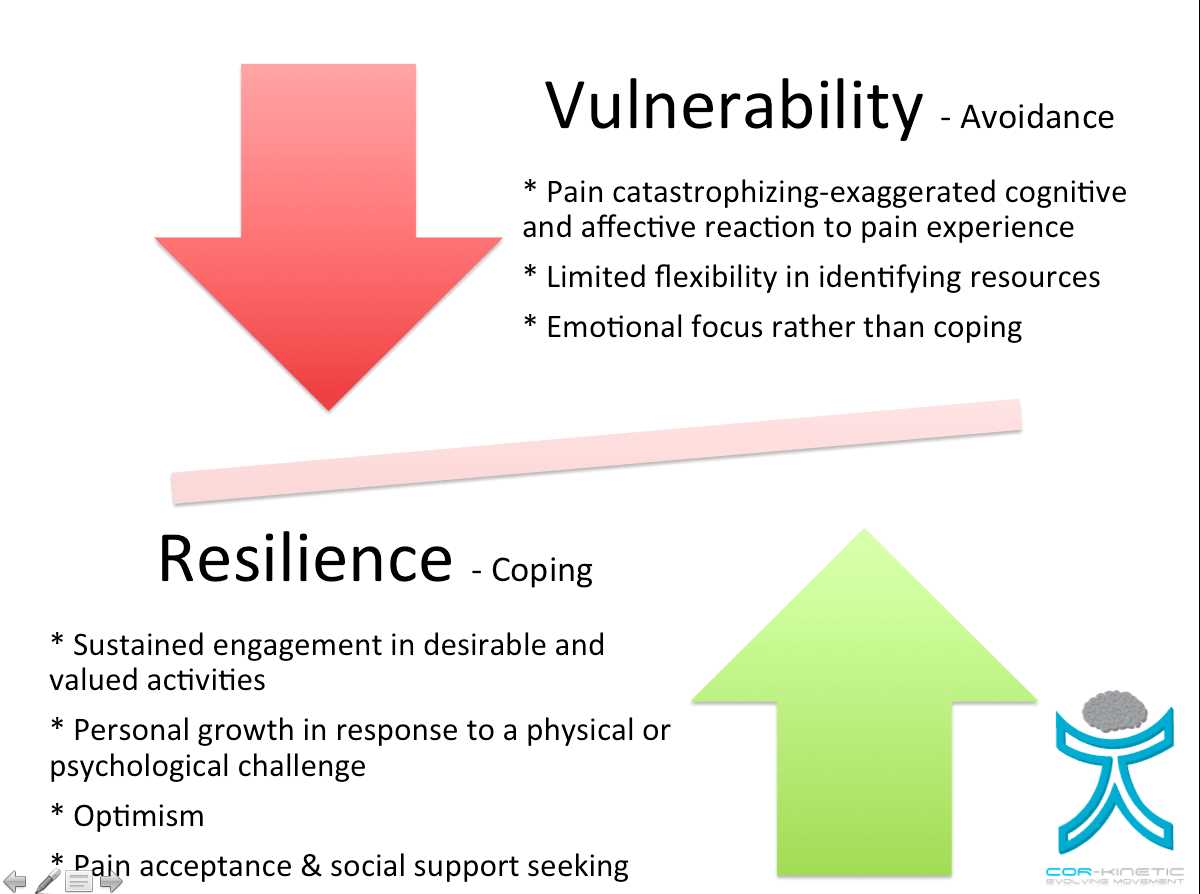
Resilience strategies offer numerous benefits in various aspects of life. These strategies promote flexibility, adaptation, and coping mechanisms, enabling individuals to navigate through challenging situations with ease.
One of the key benefits of resilience strategies is their ability to enhance mental and emotional well-being. By developing resilience, individuals can effectively manage stress and bounce back from setbacks. Resilience provides individuals with the strength and determination to overcome obstacles, leading to improved mental health and overall life satisfaction.
Resilience strategies also play a crucial role in fostering personal growth and development. When faced with adversity, resilient individuals are more likely to view challenges as opportunities for growth and self-improvement. They are open to learning from their experiences and are willing to make necessary changes to adapt and thrive.
Furthermore, resilience strategies contribute to improved relationships and social connections. Resilient individuals are better equipped to handle conflicts and disagreements, as they possess the ability to communicate effectively and find common ground. This enhances their interpersonal skills, leading to stronger and more fulfilling relationships.
Resilience strategies also have a positive impact on professional success. Individuals who possess resilience are more likely to persevere in the face of obstacles and setbacks, leading to increased productivity and achievement. They are also more adaptable to change and can quickly adjust to new circumstances, making them valuable assets in the workplace.
In summary, resilience strategies offer a multitude of benefits in various aspects of life. From enhancing mental and emotional well-being to fostering personal growth and development, resilience strategies provide individuals with the tools and mindset to navigate through life’s challenges with strength and adaptability.
Resilience in Different Contexts
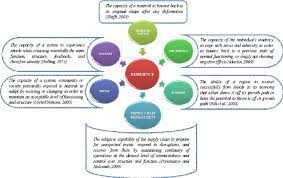
Resilience is a term that holds significant meaning in various contexts, including personal, professional, and societal settings. It refers to an individual’s ability to cope with and bounce back from adversity, demonstrating strength in the face of stress and challenges.
In personal contexts, resilience involves developing strategies and skills to navigate difficult life circumstances, such as loss, trauma, or major life changes. It is about finding ways to recover and adapt, building a sense of inner strength and perseverance.
Professionally, resilience is crucial for individuals to thrive in the face of work-related stress, setbacks, and challenges. It involves developing strategies to manage stress effectively, bouncing back from failures, and adapting to changing work environments. Resilient individuals are better equipped to handle the demands of their jobs and maintain a positive mindset.
In societal contexts, resilience is essential for communities and organizations to recover and adapt in the face of major disruptions, such as natural disasters, economic downturns, or social upheavals. It involves developing strategies to mitigate the impact of these events, fostering community cohesion, and promoting collective resilience.
Overall, resilience strategies are crucial in various contexts as they enable individuals, communities, and organizations to overcome adversity, recover from setbacks, and adapt to changing circumstances. By building resilience, individuals can thrive and maintain a positive outlook, even in the face of challenges.
| Meaning | Resilience | Coping | Strength |
|---|---|---|---|
| Ability to bounce back from adversity | Strategies to navigate challenges | Skills to manage stress effectively | Inner resilience and perseverance |
| Stress | Strategies | Recovery | Adaptation |
| Source of challenges and setbacks | Approaches to overcome adversity | Process of recovering from setbacks | Ability to adjust to changing circumstances |

I am Patrina de Silva, a psychologist and mental health blogger in Sri Lanka. After obtaining psychology degrees from the University of Colombo and Monash University, I returned home to work as a counselor while also starting the popular blog “Pressy but Happy” to provide advice on psychological issues. Over the past decade, my empathetic articles have made my blog a leading mental health resource in the country. In addition to writing, I maintain a private therapy practice, frequently volunteer counseling time, and conduct seminars, driven by my passion for destigmatizing mental illness and educating the public on the mind-body connection. I strive to be an influential voice in my field through my compassionate approach.
